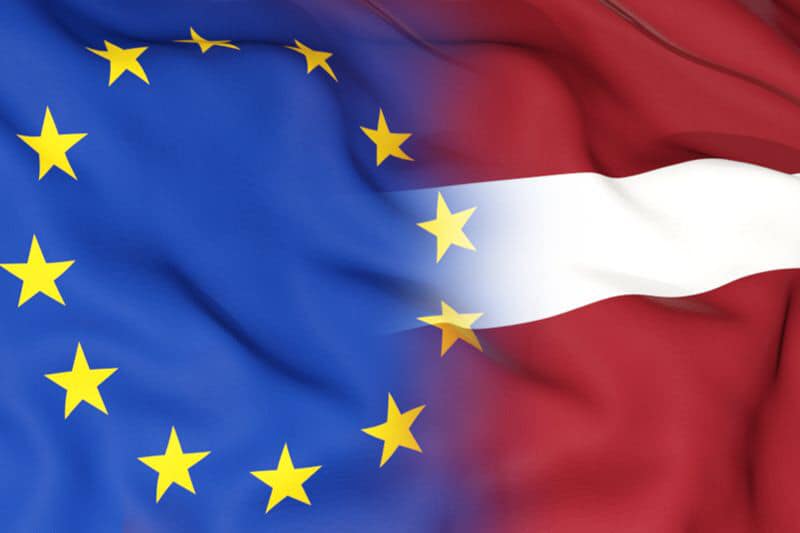Today, on the 1st of May, Latvia marks 18 years since it became a full member of the European Union (EU).
Latvia's accession to the EU is one of the most important foreign policy achievements of the restored Latvian state and represents a significant moment in Latvia's history. It was a major catalyst not only for the country’s economic development, but for also provided stability, security and helped to restore Latvia as a modern and developed country.
The EU is the largest trading bloc in the world, the euro is the second largest global currency, and EU nationals have the right to study and work in any of its Member States. The EU is a global leader in combating climate change and providing development aid, promoting democracy, fundamental freedoms and the rule of law beyond its borders.
Latvia's EU-integration has taken almost a decade. On 13 October 1995, President Guntis Ulmanis and Prime Minister Māris Gailis signed Latvia's formal request for EU accession.
In 1996, the National Programme for Latvia's EU Integration was approved, the European Integration Council was established, and a delegation from the European Commission (EC) began its work in Latvia.
In 1997, the Latvian Mission to the EU was opened in Brussels. The non-governmental organisation "European Movement in Latvia" started working in Latvia.
In December 1999, the Helsinki Council decided to open accession negotiations with Latvia. The decision on Latvia was based on the EC progress reports.
On 16 April 2003, the President of Latvia Vaira Vīķe-Freiberga, Prime Minister Einars Repše, Foreign Minister Sandra Kalniete and the Chief Negotiator Andris Ķesteris signed the EU Accession Treaty on behalf of Latvia in Athens.
On 20 September 2003, a referendum on Latvia's EU membership was held. 66.97% of Latvian citizens voted in favour and 32.26% against.
On the 1st of May 2004, Latvia became a full member of the EU.
In December 2007, Latvia joined the Schengen Agreement, which introduces the abolition of border controls for citizens of the Member States at internal borders and ports.
Border controls at land and sea borders were lifted on 21 December 2007 and at airports on 30 March 2008.
On 1 January 2014, Latvia joined the euro area, exchanging the national currency – lats for the euro, the common currency of the EU, and becoming the 18th country in the euro area.
Latvia held the Presidency of the European Council in the first half of 2015.
